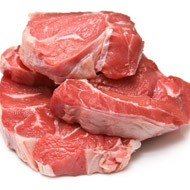FSA and VPHA respond to ‘dirty meat’ claims

VPHA president Lewis Grant said: ‘Recent media reports of contaminated meat, whilst naturally of concern, do not give the complete picture...'
Investigative journalists say one in four slaughterhouses are failing to take basic hygiene precautions to prevent contaminated meat entering the food chain, based on analysis of government audits of more than 300 abattoirs in England, Wales and Northern Ireland.
However, the Food Standards Agency (FSA) and Veterinary Public Health Association (VPHA) have responded to media reports, saying they ‘do not give the complete picture’.
According to the investigation by the Observer and the Bureau of Investigative Journalism, who looked at the most recent audits of 323 abattoirs, 86 failed to pass a key test - that 'all handling and processes from slaughtering to despatch are done in a way that avoids the contamination of meat and offal entering the food chain'.
Articles detailing the findings claim the hygiene breaches were documented during FSA inspections, and included instances of carcasses coming into contact with the factory floor, cutting equipment not being sterilised or washed adequately, and meat splashed with dirty water potentially containing faecal matter.
Investigators said the failings ‘could expose consumers to serious food poisoning illnesses such as E. coli, salmonella or campylobacter’.
The Observer and the Bureau also said FSA records were falsified to conceal the true level of meat contamination at an English abattoir processing pigs, sheep and cattle. According to the articles: ‘A whistleblower said data relating to contamination of carcasses was mis-recorded to mask poor hygiene practices at the plant, potentially allowing dirty meat to enter the food chain.’
Microbiologist Professor Hugh Pennington, who chaired the official enquiries into the E. coli outbreaks in Scotland in 1996 and South Wales in 2005, said: “If it was one in 100, even that would be too many, but one in four is unacceptable. This is basic hygiene.”
Prof Pennington also said rectification - the process of cutting off any parts of the carcass that are visibly contaminated with faeces - is not “microbiologically sound”. He explained: “What you might not see is the invisible bacteria further up the meat.”
However, the FSA said the purpose of trimming off visual contamination ‘is not to make carcasses sterile, but to remove areas where the risk of pathogenic bacteria being present is highest’.
Responding to the articles, VPHA president Lewis Grant said: ‘Recent media reports of contaminated meat, whilst naturally of concern, do not give the complete picture on the condition of meat entering the food chain, or on the work done by the FSA to ensure that the meat we eat is safe’.
Meat hygiene inspectors and official veterinarians inspect all red meat and poultry carcasses for visible contamination, and 99.57 per cent pass the test, the FSA and VPHA said in statements. The remaining 0.43 per cent is rejected and passed back to the food business to rectify the problem.
The FSA added: ‘Hygiene failures are not tolerated by the FSA, and we take robust enforcement action to ensure food businesses improve their procedures to prevent meat becoming contaminated in the first place. Ultimately if standards are not improving or the risk to public health is high enough, we take enforcement action up to and including taking away a premises’ approval to operate.
‘We have no plans to do away with real time meat inspection as it remains a crucial and integral part of the way in which we effectively administer the legal system of controls to assure the public that meat production complies with hygiene and animal welfare controls.’



 The BSAVA has opened submissions for the BSAVA Clinical Research Abstracts 2026.
The BSAVA has opened submissions for the BSAVA Clinical Research Abstracts 2026.